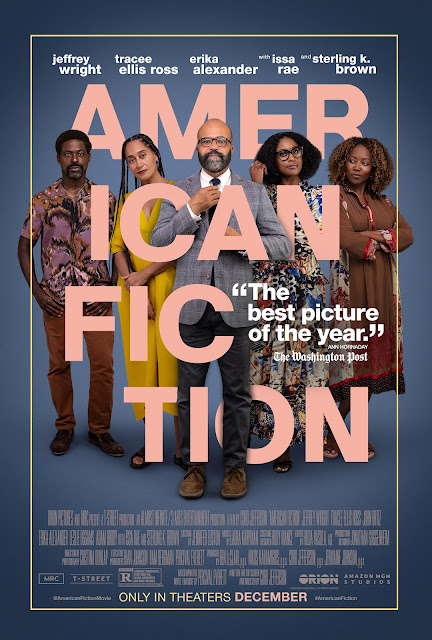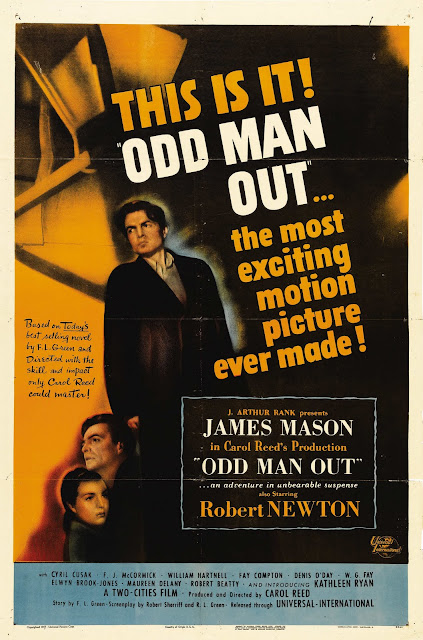☆ ☆ ☆ ☆
American Fiction (2023) – C. Jefferson
Audacious directorial debut by Cord Jefferson who also
won the 2024 best screenplay Oscar for adapting Percival Everett’s book
Erasure. Apparently, the title of the
film was going to be the same as the title of the book by Stagg R. Lee in the
film but ironically the producers must have gotten cold feet. Irony is the name of the game here in this
smart dramedy that manages to retain its heart, make some solid points, and
even go “meta” at the end while never losing the audience. It is great to see
Jeffrey Wright (as Thelonious “Monk” Ellison) take the lead (as he did so many
moons ago as Basquiat) and he holds down the centre of the picture with a not-always-likeable
character who nevertheless is very human.
He’s a respected writer (and college prof) who doesn’t have sales to match
the esteem. After seeing another Black writer
receive plaudits for writing a trashy novel of the (stereotyped) Black
experience, he bangs out what he thinks is a parody and gives it to his
agent. This sociological theme sits
alongside a nicely delivered family drama, given life by Wright, Leslie Uggams,
Sterling K. Brown, Tracee Ellis Ross, and Myra Lucretia Taylor. Erika Alexander
is excellent as Monk’s love interest, an independent woman rather than a
sidekick. Endings to films like this are
often hard to stick so kudos to the filmmakers for taking chances and landing the
perfect one (or two… or three).














.jpeg)




